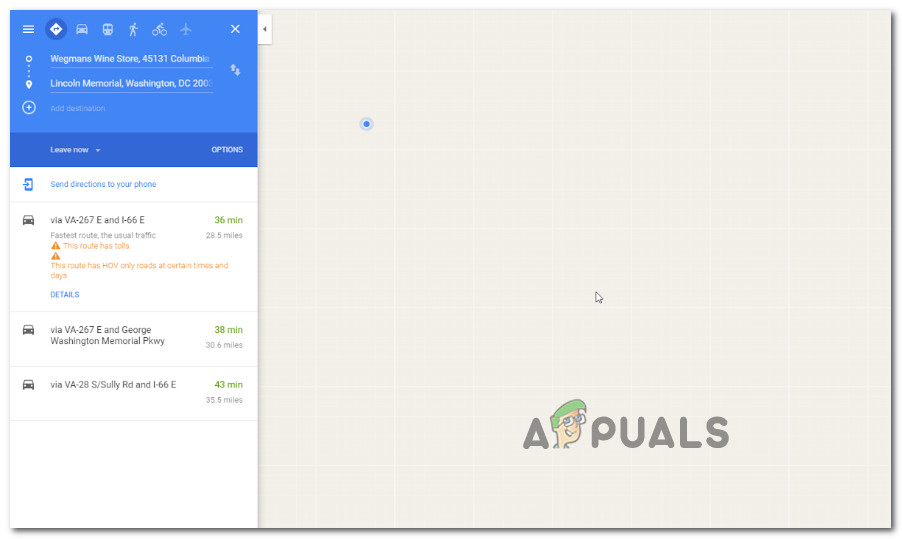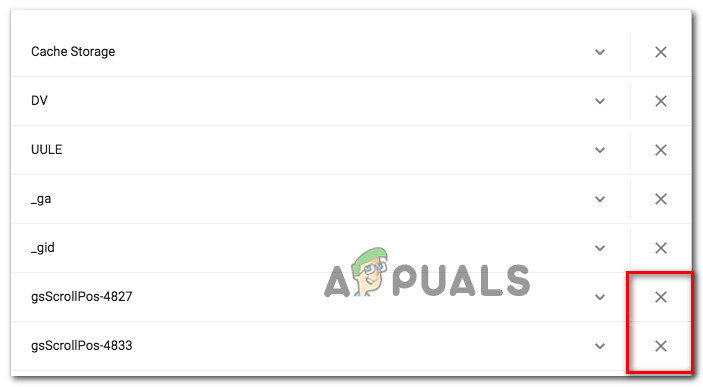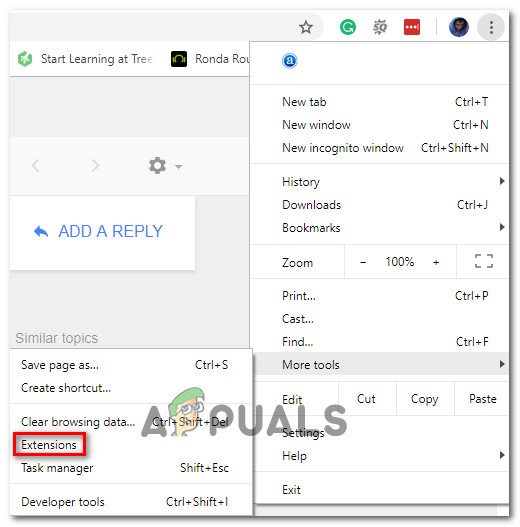Fix: Google Maps Not Working in Chrome
A lot of users are reporting that Google Maps is no longer working properly inside the Chrome browser. Most of the time, affected users report that the 3D function and the street view feature are not starting when the user clicks on Directions. The issue is mostly reported to occur on Windows, but there are scarce reports of the issue occurring on macOS and Android.

What is causing the ‘Google Maps Not Working in Chrome’ error?
We investigated this particular issue by looking at various user reports and the repair strategies that they used to get the issue resolved.
As it turns out, this particular issue will occur because of a bugged Google cookie that is specific to Google Chrome. Google has since patched the issue, but you might still struggle with the error if you haven’t deleted your cookie collection since the issue started occurring.
If you’re currently looking for a way to resolve this particular issue, this article will provide you with a collection of troubleshooting steps that will allow you to resolve or circumvent the issue. Please follow whichever method seems more applicable to your current scenario.
Method 1: Using Incognito mode
A couple of affected users have reported that the issue is no longer occurring while using Incognito Mode. This makes sense if you think about it – incognito mode will not use any locally stored cookies or browser extensions. To open a new incognito tab, simply click the action button (top-right corner) and click on New Incognito Window.

Inside the newly opened Incognito window, reload Google Maps and see if the issue is still occurring.
If this method didn’t work or you’re looking for a permanent solution, move down to the next method below.
Method 2: Logging out of your Google Account
Another quick fix but not a very practical one is to log out of the account that you’re using when visiting Google Maps. To do this, simply click on your profile picture (top-right corner) and then click on Sign Out.

After the sign out is complete, refresh the page and see if the issue has been resolved. Of course, this is not a practical solution, but it will allow you to use the full functionality of Google Maps if you’re in a hurry.
If you’re looking for a permanent fix, move down to the next method below.
Method 3: Deleting any cookie that starts with gsScrollPos
If you want a complete guide that will allow you to resolve the issue indefinitely, you can take care of the issue by deleting the specific cookies that are causing the problem. Of course, you can always delete your whole collection of cookies, but keep in mind that this will make your browser forget a lot of user preferences (such as login information, behavioral settings, etc.)
The better solution is to target those specific cookies and prevent them from breaking the Google Maps functionality on Chrome. Here’s a quick guide on how to do this:
- Open Google Chrome, type/paste the following address inside the navigation bar and press Enter:
‘chrome://settings/cookies/detail?site=www.google.com’
Note: Keep in mind that this link will be a little different depending on which version of Google you’re using. For example, for google.co.uk, the link to Google’s cookies is: ‘chrome://settings/cookies/detail?site=www.google.co.uk’. - The link will open a Settings window containing all cookies that are being locally stored by Google. The cookies responsible for the bug all start with gsScrollPos. So hunt all of them down and remove each occurrence by clicking the X button associated with each one.

Removing all GSScrollPos cookies - Once every gsScrollPos cookie has been deleted, restart your Chrome browser and the issue should now be resolved.
Method 4: Uninstalling the Great Suspender extension
Google has resolved this bug shortly after it got attention from the major online publications, but some users have reported that in their cases, the issue resurfaced after some time. After additional investigations, they figured out that an extension called Great Suspender was recreating the gsScrollPos cookies responsible for the issue.
If you’re in a similar situation, follow the steps below to check your extension tab and uninstall the Great Suspender extension if applicable:
- Click the action button (top-right corner) and go to More Tools > Extensions.

Accessing the extensions tab - Inside the extensions tab, find The Great Suspender Extension and click on Remove to get rid of it.

Removing The Great Suspender extension - Restart your Chrome browser and see if the issue has been resolved.





